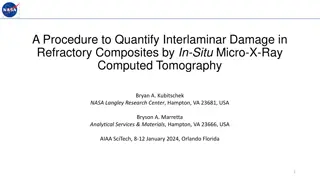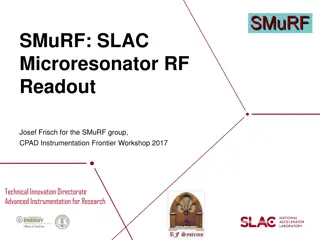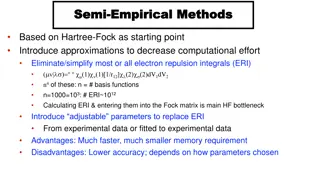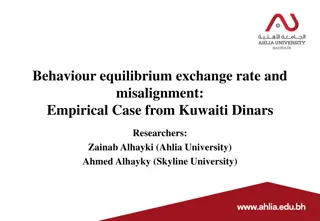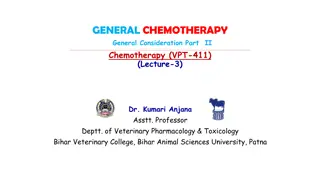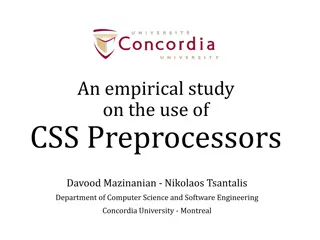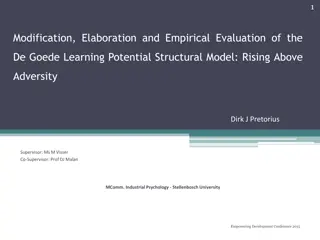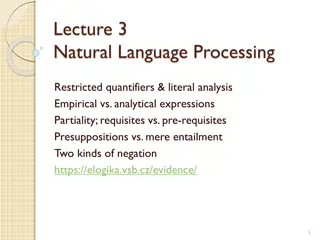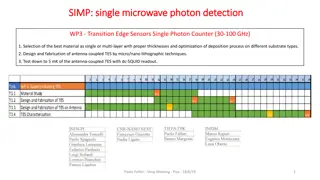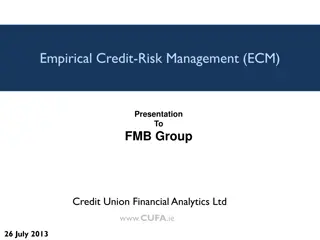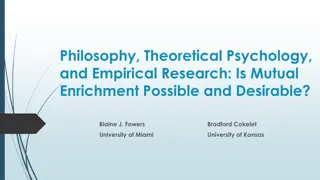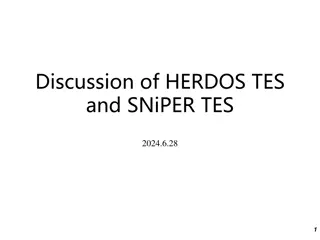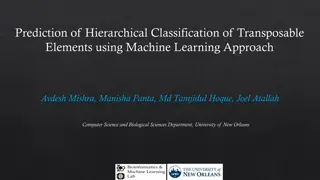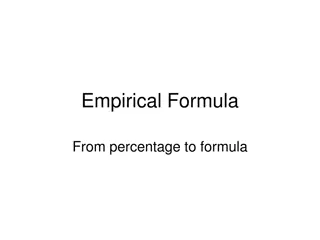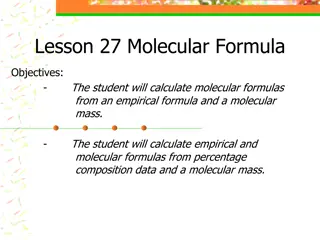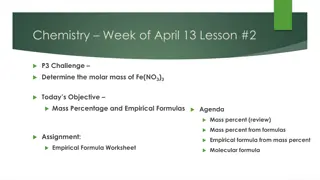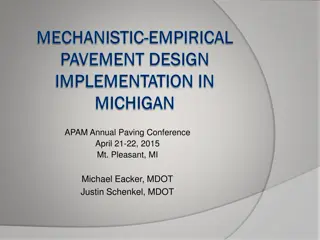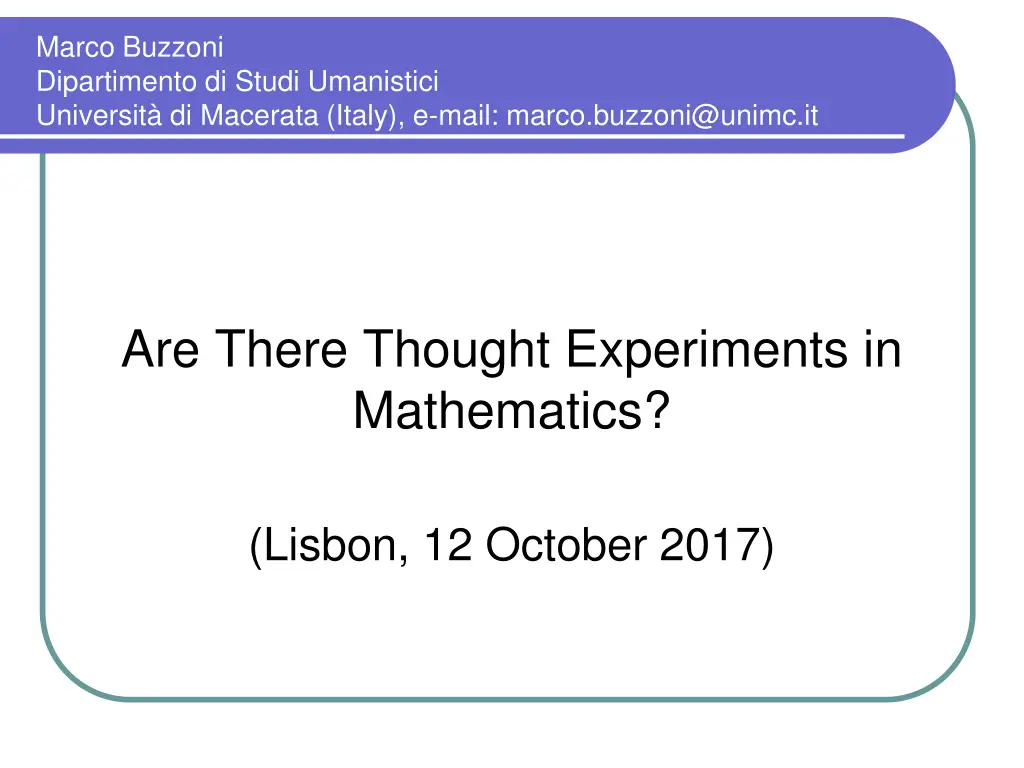
Thought Experiments in Mathematics: An Unconventional View
Explore the unconventional perspective on the existence of thought experiments in pure mathematics and delve into the strength of Mathematical Platonism as it relates to the nature of mathematical entities. Discover how the concept of infinity plays a crucial role in shaping mathematical understanding beyond empirical boundaries.
Download Presentation

Please find below an Image/Link to download the presentation.
The content on the website is provided AS IS for your information and personal use only. It may not be sold, licensed, or shared on other websites without obtaining consent from the author. If you encounter any issues during the download, it is possible that the publisher has removed the file from their server.
You are allowed to download the files provided on this website for personal or commercial use, subject to the condition that they are used lawfully. All files are the property of their respective owners.
The content on the website is provided AS IS for your information and personal use only. It may not be sold, licensed, or shared on other websites without obtaining consent from the author.
E N D
Presentation Transcript
Marco Buzzoni Dipartimento di Studi Umanistici Universit di Macerata (Italy), e-mail: marco.buzzoni@unimc.it Are There Thought Experiments in Mathematics? (Lisbon, 12 October 2017)
Introduction: The main thesis My talk will address the problem of the nature of thought experiments (TEs) in mathematics. My main thesis: It is usually taken as obvious that there are mathematical thought experiments (MTEs). But against the opinion held by almost all scholars, I shall maintain that, unlike in the natural sciences and applied mathematics, within pure mathematics TEs cannot be regarded as a particular method or a specialized domain. In this sense, it would be misleading, and therefore not advisable, to speak of TEs in (pure) mathematics.
The strength of Mathematical Platonism For the purposes of my talk, I have to give at least a rough idea of what I mean when I speak of mathematics as distinguished from the empirical sciences. In today's debate about the scope and limits of TEs, an authoritative definition of mathematical Platonism comes from Brown: Platonism is the doctrine with (1) an ontological ingredient that mathematical entities are perfectly real (though they are abstract, not physical) things that exist outside of space and time, and (2) an epistemological ingredient that we can somehow intuit, perceive, or intel- lectually grasp (some of) these abstract entities. (Brown [2007b], p. 9)
The two major points of strength of Mathematical Platonism according Russell first, [ ] the validity of the inductive principle itself cannot be proved by induction; secondly, [ ] the general propositions of mathematics, such as 'two and two always make four', can obviously be known with certainty by consideration of a single instance, and gain nothing by enumeration of other cases in which they have been found to be true. Thus our knowledge of the general propositions of mathematics (and the same applies to logic) must be accounted for otherwise than our (merely probable) knowledge of empirical generalizations such as 'all men are mortal'. (Russell [1912], p. 47)
The concept of infinity In my opinion, both difficulties derive, in the last analysis, from the fact that a purely empiricist philosophy is unable to account for our possession of the idea of the infinite, without which - to paraphrase Galileo - it is impossible to understand a single mathematical word. It is not only endless progressions such as counting without end or endlessly dividing a segment into smaller and smaller segments that presuppose the notion of the infinite: all mathematical concepts do. In a certain sense, all mathematical entities are limit entities (where this general concept of limit is not to be confounded with the mathematical idea of a limit such as for example Cauchy s formalized definition of the limit of a function - which is only an exemplification of it).
Locke and the concept of infinity Locke is the best example of the standard empiricist attempt to solve the difficulty mentioned before: the concept of the infinite derives from the impossibility of setting a final and insurmountable limit to the addition of finite quantities to one another. But I agree with Brown (1999: 40), which makes this point against constructivism in mathematics: to regard a mental or physical procedure as infinitely reproducible in a Lockean sense presupposes the idea of the infinite in some implicitly actual sense.
Mathematics power to anticipate experience Platonism, however, is unable to account for mathematics' apparent power to anticipate facts about things of which we have no experience: It seems strange Russell wrote that we should apparently be able to know some truths in advance about particular things of which we have as yet no experience; but it cannot easily be doubted that logic and arithmetic will apply to such things. We do not know who will be the inhabitants of London a hundred years hence; but we know that any two of them and any other two of them will make four of them. (Russell 1912: 47)
The main difficulty of Platonism This fact, pace Russell, is not an argument for Platonism. On the contrary, it is a powerful objection against it. Mathematics power to anticipate facts about things of which we have no experience presupposes the successful empirical application of mathematics. But Platonism is unable to explain the applicability of ideal or perfect forms or structures to something as contingent and imperfect as empirical reality. Mathematical forms or structures cannot be incommensurable with empirical reality; otherwise they would be inapplicable to it.
Wittgensteins philosophy of mathematics Unlike Platonism, the later Wittgenstein s philosophy of mathematics explains easily the applicability of mathematics to reality, natural and social. Wittgenstein's solution hinges on the concrete practices in which mathematics is applied. On the one hand, these results depend on the regularities of physics: our mathematics would be different if they were totally different from the ones we know. On the other hand, these results depend on the purposes that guide mathematicians: our entire mathematics would become meaningless if, for example, they wanted to produce a contradiction "in order to show that everything in this world is uncertain (cf. Wittgenstein [1956], II, 81).
and its main difficulty However, Wittgenstein seems to have overlooked that our experience of the world is always to some extent already idealised. Not only in science, but also in everyday life we cannot avoid idealisations. If I say, 'If you opened your shutters, you would see a magnificent sunset,' I am using some idealisations, which may not quite fit the sensible world. I am presupposing, for example, that the shutters are 'normal shutters', that is to say, shutters which fit an ideal model, whereas the real shutters could be very different so rusty, say, that they cannot turn on their hinges without breaking. Also our cutting a cake in equal pieces presuppose ideal entities.
How does idealization arise? How does idealization arise? On this question, Wittgenstein's position has no advantage on any purely empiricist view. Mach rightly pointed out that empirical idealizations arise by methodically diminishing continuous variations. However, the possibility of conceiving as already completed what in fact is an endless progression of gradually and continually diminishing variations, presupposes the capacity of grasping the actual infinite.
Idealisations, 'passage to the limit, and the concept of infinity It is not easy to deny that idealisations, which emerge by means of 'passages to the limit , are not intimately connected with the concept of the infinite. As far as the infinite is involved, Brown is right: both mathematical and empirical TEs "transcend experience" (cf. Brown [2004a]). For this reason, idealisations in the empirical sciences and in empirical TEs (frictionless pendulums, perfectly smooth surfaces etc.) are as irreducible to gen- eralisations from experience as are the ideal entities of mathematics.
On the one hand, a quasi-Wittgensteinian genesis of mathematical entities The Wittgenstein s later point of view can be combined with the irreducibility of the notion of the infinite to experience, to obtain what might be called an operational and transcendental point of view. On the one hand, the ideal entities of mathematics derive from experience in a quasi-Wittgensteinian sense, since they originate by means of idealisation from our concrete operational or experimental practices. Arithmetic originated from counting, and geometry from measuring and dividing cultivable land ("geometry" literally means earth- measuring).
On the other hand, our capacity to conceive the infinite On the other hand, mathematical entities arise through a process capable of indefinite or unending iteration, which presupposes our capacity to conceive the infinite, a concept that cannot be derived from experience. Example: On the one hand, the postulates at the beginning of Euclid's Elements refer to a constructive-operational possibility of real actions (to draw a straight line between any two points); on the other, they presuppose both the definition of a point as that which has no parts (that is, as the limit towards which a real point tends when its surface is made to decrease towards infinity), and the definition of a line as a breadthless length (that is, as the limit towards which a line drawn on a piece of paper tends when its breadth is made to decrease towards infinity).
Applied mathematics To claim that mathematical idealization always originates from particular concrete operational practices is essentially the same as claiming that mathematics always arises as applied mathematics. Applied mathematics remains always open to feedback from new experience. Elementary rules of addition do not apply when we add velocities in the order of magnitude of the speed of light; nor do they apply when we add, for instance, drops of water.
and pure mathematics Despite that, the human mind is able to formulate a pure mathematics. But a further step besides idealization is needed to open up the symbolic field of pure mathematics: pure mathematics arises when the mind, so to speak, refuses in principle, rather than de facto or provisionally, to take into account new or future experience. Applied mathematics turns into pure mathematics if it is shielded against any retroaction from new experimental acquisitions (where the word experimental always involves a practical, operational, or interventionist interaction between our body and reality).
A riddle to illustrate the point There are ten birds on a tree, a hunter comes along and shoots one; how many birds are left on the tree? The answer is none, since all the birds have flown away frightened by the bang. The joke hinges on the sudden shift from the perspective of pure mathematics.
Empirical and mathematical TEs An example from Husserl In what follows, I shall examine the consequences of the previous considerations for the relationship between empirical and mathematical TEs. For this purpose, lest us briefly discuss an example taken from of Husserl: If a geometer suffered from hallucinations and instead of actually drawing his lines and constructions he imagined them in a world of phantasy , his geometric proofs would be just as valid. On the contrary, if a natural scientist suffered from hallucinations, then his results would lose all validity, because for him experience is a grounding act which can never be substituted by a mere imagining. (Husserl 1913 [Ideen], I, 7, p. 16)
Agreement and disagreement with Husserl s example Even though experience constitutes, pace Husserl, a necessary starting point for all knowledge which is intended to be sooner or later applicable to reality, it must be conceded that mathematics can develop into pure mathematics only as far as experience is no longer held to be a grounding factor with regard to the truth or falsity of its axioms and inference rules. On the other hand, it cannot be conceded without qualification that a mathematical proof which was invented in a dream or during a hallucination will turn out to be valid when its inventor comes out of this condition. The proof will be valid only if it is possible to reconstruct in the first person the procedural steps leading to the desired conclusion.
Brown on picture-proofs and intuitive seeing This question was at the centre of a debate between Norton and Brown. According to Brown many mathematical proofs presuppose that we immediately see the truth of a theorem, in a sense of seeing which is essentially similar to Plato s. For example: 1 + 2 + 3 + + n = n2/2 + n/2
Norton (and Peirces) rejoinder On the contrary, according to Norton we do not immediately see the truth of the theorem upon being confronted with the figure. At first we are startled and then we give ourselves a silent commentary on the figure until we work it out. This may take more or less time according to our mathematical abilities but will be rapid in the case of someone with a mathematical background. (Norton [1996], p. 352) On this important issue, I side with Norton (and Peirce) against Brown. Brown is wrong in underestimating the steps of reasoning or inference necessary in order to have an objective proof, i.e. an intersubjectively testable proof. This is only a particular aspect of a much more general epistemological and methodological problem.
Context of discovery and context of justification By separating discovery from justification, the Neopositivists and Popper overlooked the importance of a 'genetic' approach to the logical moment of justification. A proposition may be conceived of as true or as justified only by retracing and consciously reconstructing in the first person the procedural steps that led to it. In other words, the justification of a theory would be impossible if it were separated from the reconstruction of the process that led to its discovery. In this sense, there is no point in time after which it is possible to disregard the context of discovery .
Mathematical and experimental proofs: analogy There is a basic analogy between a mathematical test and a physical one. A mathematician justifies a theorem by the same means that were used in constructing its demonstration; in the same way, an empirical hypothesis can be tested by reproducing the same experimental steps that confirmed it in the first place.
Mathematical and experimental proofs: difference However, the mathematician and the scientist return to their respective sources, as it were, walking along two opposite river banks, where, in a sense (not absolutely, but as a result of a choice), it is impossible to cross from one to the other. In pure mathematics the procedural steps which justify a particular result are concerned not with what exists, but with what could possibly exist. Therefore there is no need to refer to the concrete working of our ideas or to particular facts or real processes in the world. In this case there is, at least directly, no reality which could possibly unfold differently from the way in which the proof was developed.
What About Thoughts Experiments? A definition of empirical TEs Now, if we compare what we have been saying with the concept of an empirical TE, we may come the the main claim of my talk. Let us begin with a general definition of an empirical TE, which one can expect to be compatible with the different main accounts about this topics. An empirical TE anticipates counterfactually and at the mental level a hypothetical experimental situation so that, on the basis of previous knowledge, we are confident that certain interventions on the experimental apparatus will modify some of its aspects (or variables ) with such a degree of probability that the actual execution of the experiment becomes superfluous (cf. Buzzoni 2008: 93).
An example: Stevins inclined plane When a chain is draped over a double frictionless inclined plane, will anything happen?
Stevins inclined plane (and gravestone!) Add some links, and it becomes obvious that the initial setup must have been in equilibrium. Otherwise: a perpetual motion machine.
In a sense, there are no TEs in pure mathematics In my opinion, empirical TEs should be capable, at least in principle, of being realized, i.e. transformed into REs. I have made this point elsewhere (Buzzoni 2008), and to discuss it falls outside the purpose of this talk. Assuming its correctness, I shall apply this view to our present problem. Given the self-protection of pure mathematics against new and potentially refuting experience unlike applied mathematics and empirical knowledge there can be no actual distinction between REs and TEs: the actual performance of a MTE intended to demonstrate or to offer an argument for a theorem totally coincides with the proof of, or argument for that theorem, thus leaving no room for a separate real performance of the experiment.
The main reason Given the fundamental difference between empirical and mathematical thinking, the main reason Mach had to distinguish between real and thought experiment - that is, its greater economicity (not only in mental sense) - becomes meaningless. For this reason, it is ambiguous and therefore misleading to speak of MTEs: it would suggest that also in this case we may find a distinction similar to that of thought and real experiments.
Some objections: 1) Reply to Brown But as Brown writes it is a fact that in mathematics there is something analogous to thought experiments visual reasoning and picture proofs. (Brown 2007; cf. in the same sense Starikova and Giaquinto 2017, with reference to my account) Reply: This claim contains an element of truth. However, it is not easy to describe the relevance of this analogy (analogies are always possible!), which does not exclude important differences. For example, in the natural sciences and in applied mathematics TEs cannot usually attain the same demonstrative power as the corresponding REs. In case of doubt we must turn to REs, which remain the ultimate criterion for all empirical TEs. On the contrary as Brown himself points out picture-proofs reach in many cases the same demonstrative power of ordinary proofs.
Some objections: Reply to Van Bendegem (I) A similar point of view is taken up again by Van Bendegem, even though in a Lakatosian rather than in a Platonic spirit: If we equal facts for the scientist to proofs for the mathematician he writes then a MTE is to be something like an imaginary proof, that should help us to understand the proofs we are looking for. Hence the idea that MTEs should provide insight into either what a proof could look like, or why it is convincing, explanatory, in short, why it functions as a proof. (Van Bendegem; cf. in the same sense Starikova and Giaquinto 2017, 4)
Some objections: Reply to Van Bendegem (II) Here, however, two points should be kept separate. First, the claim that MTEs only provide insight into "what a proof could look like" makes them merely psychological, heuristic devices, and this means to take up again the problematic difference between context of discovery and context of justification. Thus what is really important is the second part of the sentence, namely that a MTE also engenders an insight into "why" a proof is "convincing, explanatory, in short, why it functions as a proof."
Some objections: Reply to Van Bendegem (III) The second is a very important point, with which I agree because, as I stated earlier, a proof or an argument functions as a proof or as an argument only in so far as it provides the reasons for believing in its conclusions in the form of steps to be reconstructed and re-appropriated in the first person. But this point goes against Van Bendegem's intention to distinguish in principle, i.e. in some epistemologically important sense, between MTEs and mathematical proofs, because this suggests, or even presupposes, only a difference in degree between TEs and genuine proofs (with which I agree).
[Some objections: Reply to Starikova and Giaquinto] A similar point may be made concerning Starikova and Giaquinto s most recent view about MTEs: there are thought experiments in mathematics, but they are to be distinguished in principle from mathematical proofs, since they neither are, nor serve in place of, mathematical proofs of the conclusions reached (Starikova and Giaquinto 2017, 4). First, all examples given by these authors are actually taken from applied mathematics and empirical thinking, and not from pure mathematics. Second, they underestimate the fundamental difference between empirical and mathematical thinking. Finally, any attempt to separate in principle proofs from what they call mathematical MTEs is bound to fail because what is to be accepted as a "proof" is a historical question, to be decided by working mathematicians.
Conclusion (I) Certainly there is some sense in which we may speak of MTEs in mathematics to the extent that this is a question of choice and definition. But this sense greatly underestimates the qualitative distinction between empirical and mathematical TEs. Unlike empirical TEs in the natural sciences (and applied mathematics), in pure mathematics there is no distinction in principle between REs and TEs. The anticipation in thought of the solution of a problem in pure mathematics, provided it is a successful one, essentially amounts to its solution.
Conclusion (II) In this sense, we can conclude that, unlike in the natural sciences and applied mathematics, within pure mathematics TEs cannot be regarded as a particular method or specialised domain. In this sense, it would be misleading, and therefore not advisable, to speak of TEs in (pure) mathematics. To the extent that the dialectical relation of contraposition and reciprocal implication between TEs and REs vanishes, in pure mathematics TEs are more similar, in their epistemologically fundamental aspects, to formal proofs than to TEs in the natural sciences.

